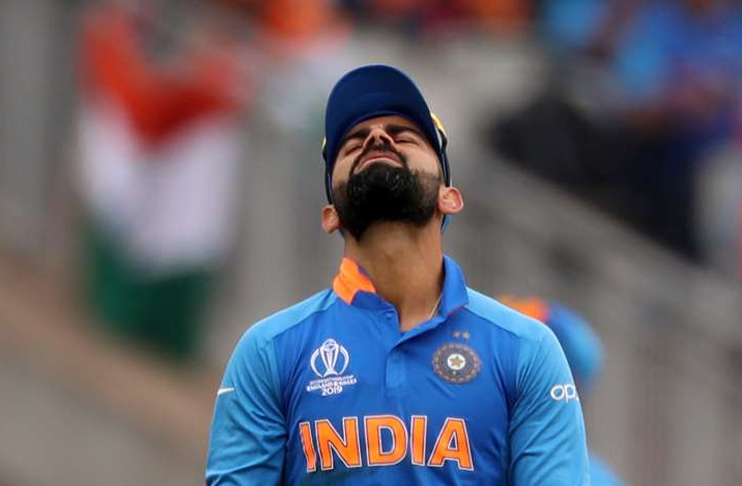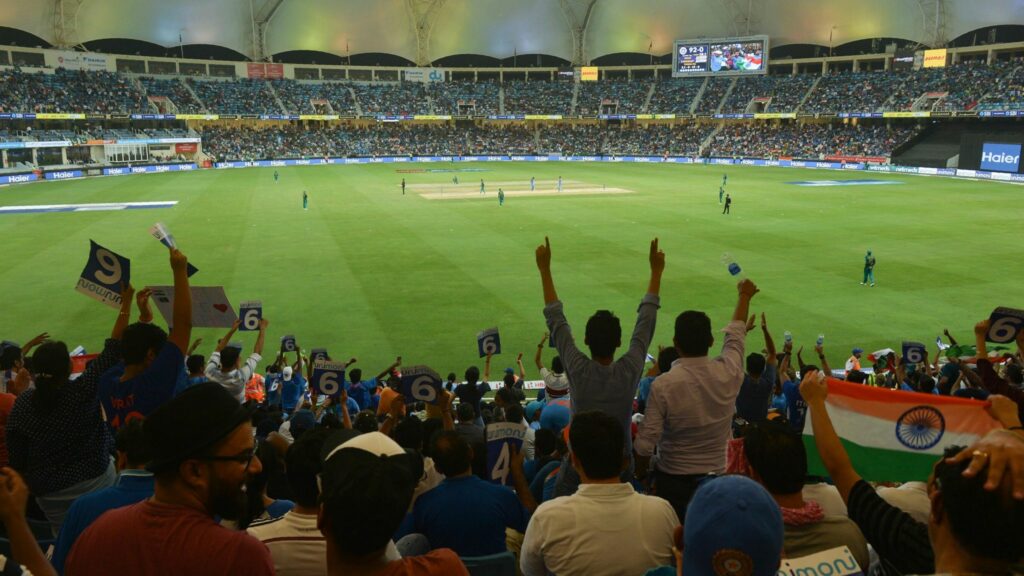Table of Contents
Before we get on with the year ahead, let’s focus on the key highlights and happenings – or mishappenings – that took place in the cricketing world in 2021. Despite the game still battling hard with the knock-on effects of the coronavirus pandemic, 2021 wasn’t short of cricketing action: be it on the field or off it. Here are some of the major talking points from the 12 months that we have had.
IPL 2021 gets postponed due to COVID-19
Cricket’s stringent bio-bubbles proved not so immune from the pandemic wrecked outside world as the 2021 edition of the Indian Premier League had to be suspended in early May due to the positive cases inside different teams’ camps. In a few days of turmoil, after moving base from Chennai and Mumbai to Ahmedabad and Delhi, the IPL 2021 experienced a surge in COVID positive cases inside teams’ bubbles.

At a time when India was experiencing a devastating second wave of the pandemic, the BCCI found it fit to postpone the event. After an extended pause, in which the Indian board arranged for everyone’s safe departure – despite travelling restrictions abroad – it also confirmed a new window for the remaining 31 matches in the United Arabic Emirates in September-October, just prior to the T20 World Cup in the Middle East.
SJN hearings expose vulnerability of South African cricket
In a country still very much fighting the effects of a dreadful past, Cricket South Africa’s Social Justice and Nation Building hearings and their findings only reinforced that racial indiscrimination and injustice is more institutional than we tend to think.
Through several hearings and reports, various names emerged that only laid bare the truth of the malfunctioning of the game within the country and its national teams, especially the men’s side.

Heading into the 28th year of the end of the inhumane apartheid regime, these hearings confirmed that cricket isn’t isolated from society and thus the need to clean up the mess by making individuals more responsible for their words and deeds, no matter their status and repute.
Also read 👉 SJN Commission accuses de Villiers, Smith and Boucher of racism
With names such as Graeme Smith, Mark Boucher, AB de Villiers, among others under the scanner for differential treatment of their black teammates, the cricketing world will stare their one eye keenly towards South Africa and CSA in the months ahead.
End of Shastri era in Indian cricket; it’s Dravid time
The year 2021 saw the end of a long, successful head coach’s tenure that former captain, allrounder and one of Indian cricket’s most loyal servants, Ravi Shastri had with the Virat Kohli-led Indian side. Under the Kohli-Shastri duo, India emerged as a globally successful side, clinching twin Test series wins in Australia, getting the closest since 2007 to winning a Test series in England.

While a major ICC trophy eluded the side – with loss in the 2019 World Cup semi-final and T20 World Cup Super 12 exit being their lowest points – Shastri can look back with fondness at his tenure. He was the team’s strongest confidant, more than its coach, and that is the individual Kohli loved working with, one with whom he can enter a war.
Shastri’s departure has signalled a new era in Indian cricket with a fresh support staff led by the great Rahul Dravid taking the ship forward. No one can doubt Dravid’s cricketing credentials, having been a Test and ODI great for the country.
His close association with various players through his previous stints as India ‘A’ & U-19 head coach and also the NCA head is expected to only ease things up for him.
India’s Test schedule is a touch light during Dravid’s tenure for the next two years. Thus, the biggest talking point will be the elusive World Cup trophy. Dravid will get to oversee two major events: the 2022 T20 World Cup and the 2023 ODI World Cup at home.
Virat’s captaincy fiasco
So much has happened, being said in this regard, that it sometimes becomes difficult to keep track of things. So let us understand it from the start: just prior to the start of the UAE leg of the IPL 2021 in September, Virat Kohli confirmed that he is leaving India’s T20I captaincy post – along with RCB captaincy in IPL – to manage his workload. At the point of his announcement, Kohli, however, confirmed that he would love to continue as the team’s Test and ODI skipper.

Things would’ve been more or less settled had the matter stopped there itself. But the existing selection committee, plus the BCCI regime led by president Sourav Ganguly and secretary Jay Shah, then left a bombshell. After India’s failure to make it past the Super 12 of the T20 World Cup, Kohli was removed as India’s ODI captain.
Rohit Sharma, Kohli’s deputy, who had already overtaken the side in T20Is, was named as the new white-ball skipper “going forward”. But since there was no explainer, no presser or even a detailed gratitude message done on Kohli’s removal, the matter escalated to a social media furore, with fans speculating a rift between the captain and the board.
Then Ganguly’s statement in the media that they don’t think there should be two white-ball captains did the rounds. Ganguly also said Kohli was asked to reconsider his T20I captaincy decision at the time but the skipper wanted to move on. Both of these statements were echoed by the chairman of selectors Chetan Sharma in his year-end press conference.
But here’s the issue: before leaving for the South Africa tour, Vrat had said that he was never asked to reconsider his T20I captaincy call and that there was no prior communication about the ODI captaincy from the end of the T20 World Cup. He was told only an hour and a half after the selection for the Test squad to South Africa that he is being removed as skipper of the ODI side.
So who’s lying and who isn’t? Go figure
Namibia’s fairytale at T20WC and New Zealand’s WTC triumph
On a happier note: New Zealand winning the first-ever World Test Championship and Namibia’s fairytale surge to the Super 12 round of the T20 World Cup were two of the most heartwarming results of the year.
New Zealand’s triumph was a big advocate of the merits of the WTC as a concept and can prove to be an inspiration for teams like Sri Lanka, West Indies, Bangladesh that have gone downward spiral with their Test game. They must feel they can also do it.

The Kiwis dominated Pakistan, West Indies and India at home and overcame a horrible series whitewash in Australia to make the final, where they toppled over the mighty powerful Indians in a rain-marred affair in Southampton.
Namibia’s rise, on the other hand, shall act as a catalyst for other associate countries to believe that they can replicate what the African have-nots did. Despite measly funding to nurture their players, Namibia produced a side that went past a set of cut-throat qualifying rounds, including one at the main event, and clinched impressive wins over Ireland, Scotland and the Netherlands.
Going through to the Super 12 meant extra funding and a direct place at the next T20 World Cup in Australia. Cricket can do with more Namibia-like stories.
Also read 👉 A-Z of the 2021 ICC T20 World Cup: Part 1


